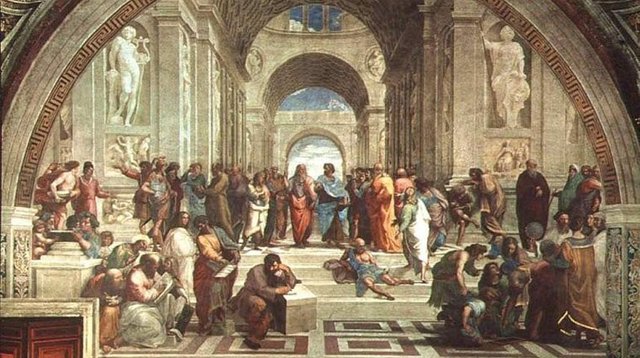Some thoughts about the Stoic School - cosmology and anthropology /part 2/
According to the Stoics to cosmology and psychology (or, as they have said, to "physics"), the issue of freedom of will, which is usually considered in ethics, is also falling. In their view, the world is, as we have seen, the most rigorous rule of which everything is unconditionally subordinate. Therefore, a logical consequence would inevitably lead to strict determinism and even to fatalism. However, despite the strict, eternal, and all-encompassing world rule, the Stoics have taught that man has free will. Not that he is free of regularity and necessity, but since he is a reasonable being, he may be aware and expedient to use the necessity.
So the famous rule of the Stoics that freedom is nothing but acceptance with nature or that freedom is nothing but the realized need (which we have seen above in Cleant and Seneca's statement) actually has a double meaning: on the one hand means subjugating the common natural necessity, but on the other hand means that man, unlike anything else in the world, obeys the necessity according to his nature as a rational being and therefore, the more he acts in his actions so your mind, the more governed and controlled the necessity and therefore more free. In this sense, Hrisipp says: "Our deeds are with us and they come from us."
Stoics ethics
The thought that the whole world is subordinate to laws, but only man as a reasonable being is able to know them and consciously to them follows and uses is fundamental to the ethics of the Stoics. Their basic requirement is to live in a nature-friendly way. But the nature of man is that he is a reasonable being and a being. Therefore, to live in a nature-friendly way is to live wisely, and to be conscious and to perform public order. In such a life is the virtue and the happiness of man. Nature itself teaches us such a life by giving us natural instincts. The instinct of self-preservation is inherent in every living thing, so every living thing strives to live according to his nature and only so has a price that serves for his self-preservation. For man, as a reasonable being, only according to reason there is a real price. That is why virtue is expressed in the fight against the unnatural, with the unconscious passions and aspirations. We must root out these disabilities of our soul from the root to reach oblivion and to submit our will to reason, knowledge, and truth. All evil is ultimately reduced to ignorance, not obedience to reason, in disgust of reason.
For these reasons, virtue is also knowledge and firmness of the spirit. All virtues rely on knowledge and are expressed in agreement with this knowledge. The basis of all virtues according to Hrisipp is wisdom. They are all a constantly well-intentioned mood. Therefore, where there is a virtue, there are all virtues where there is one sin, and there are all sins. All private virtues are derived from the common virtue. There are four main or cardinal virtues:
a / reasoning / phronisis / or wisdom;
b / courage;
c / temperament or moderation;
d / justice.
